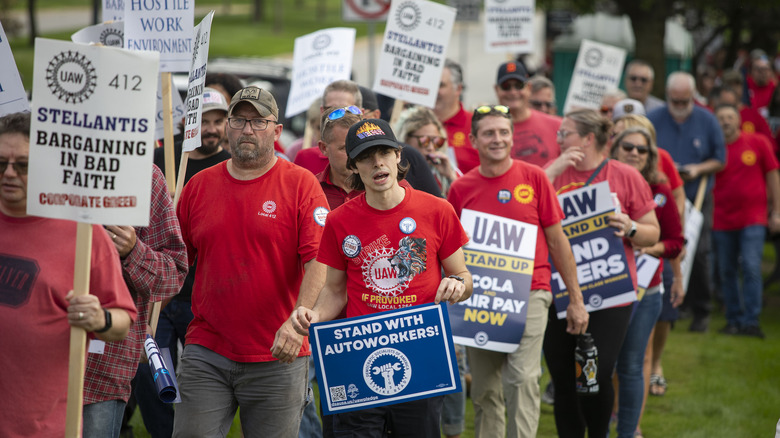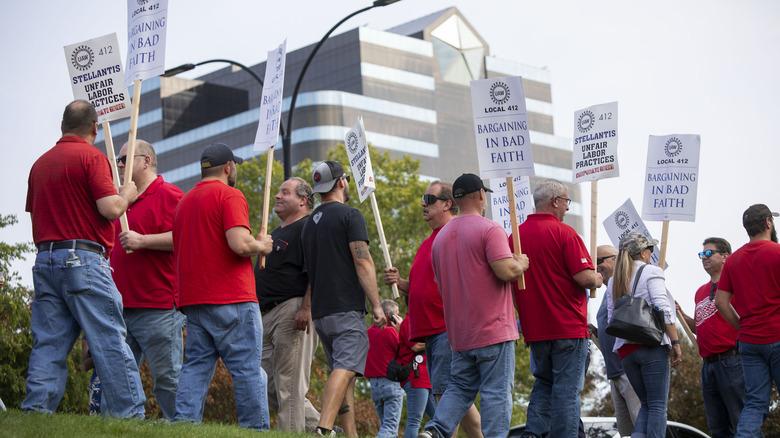UAW Strike: What Do Auto Workers Want & How Could It Affect You?
The UAW (United Autoworkers Union) has authorized a strike across several major automotive factories across the country, namely plants from Ford, General Motors, and Stellantis (formerly Chrysler) those companies comprise Detroit's "Big 3." The UAW is huge, comprising of more than 150,000 workers just at the Big 3. According to the UAW's website, the union's contract that dictates workers' pay, retirement, and more expired on September 14th and existing contract proposals from automakers weren't going to cut it, hence the strike.
According to the UAW's website, one of the biggest demands is an end to what's called a "tier system" that, per the UAW, makes workers "second class." The current tier system can see new workers hired on a "temporary" status and make significantly less money than other workers doing the same job. NBC News notes that it could take upwards of eight years to reach full employee status. In addition to wage increases across the board, the UAW wants cost of living adjustments and a more traditional pension plan reinstated.
Plant closures are another huge cause of concern for the union. Reportedly, 65 major automaker plants have been closed over the past 20 years, resulting in an indisputable massive hole in the American manufacturing economy. The UAW proposes that instead of shuttering a plant, the automaker in question could transition to making electric vehicles.
What this means for the future
With 150,000 plus workers affected, there are a lot of moving pieces in play, and as of now, on September 21st, negotiations are still up in the air as the contract has only been expired for a week. There's still the question of how this will impact the regular car buyer who is otherwise unaffiliated with the UAW. At the start, if the strike continues for much longer and contract negotiations are not met, there will probably be little noticeable effects as car dealerships and the like have cars in stock that were produced months ago.
Once that stock runs out (of course if the strike continues to happen), then supply lines of new cars to dealerships will start feeling the strain. It likely won't reach levels seen during COVID with chip shortages, but it has the potential to come close. All told, this has the potential to hugely impact the car-buying market.
However, as scary as that may sound, the automakers should treat their workers with respect and give them the fair treatment they deserve. Autoworkers in the United States shouldn't have to be afraid of not making ends meet while they're working and after retirement. Automakers like Ford, GM, and Stellantis, shouldn't close entire plants on a whim without plans in place for the workforce because it's slightly better for the bottom line to do so. After all, the Big 3, wouldn't be as big if it wasn't for its workers on the assembly line.
Disclosure: the author of this article worked at a UAW GM plant in the past, but was not formally part of the union.

